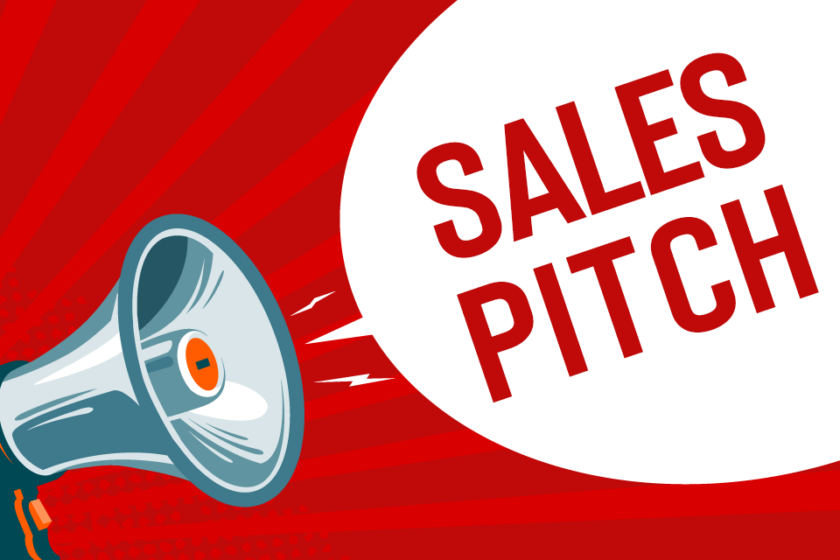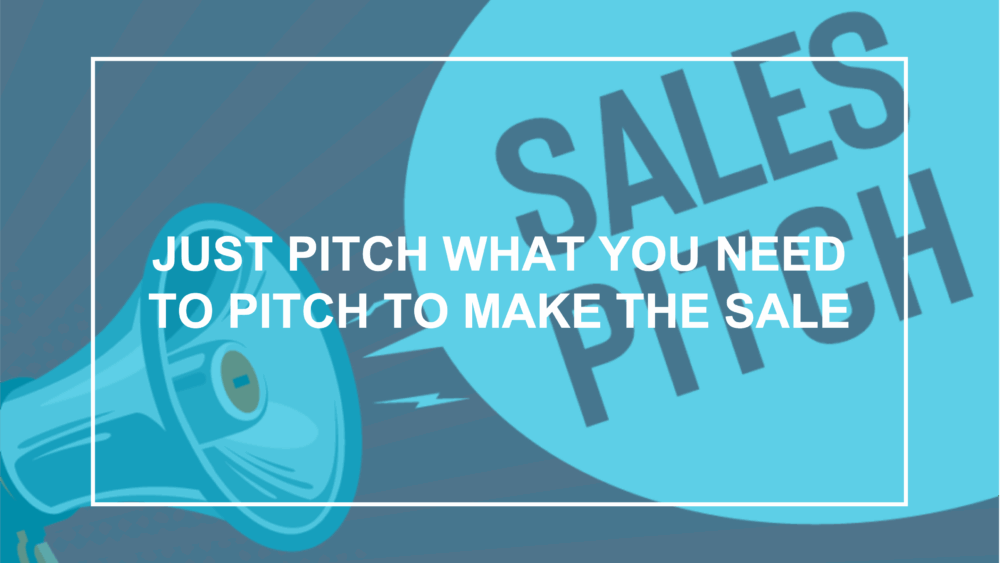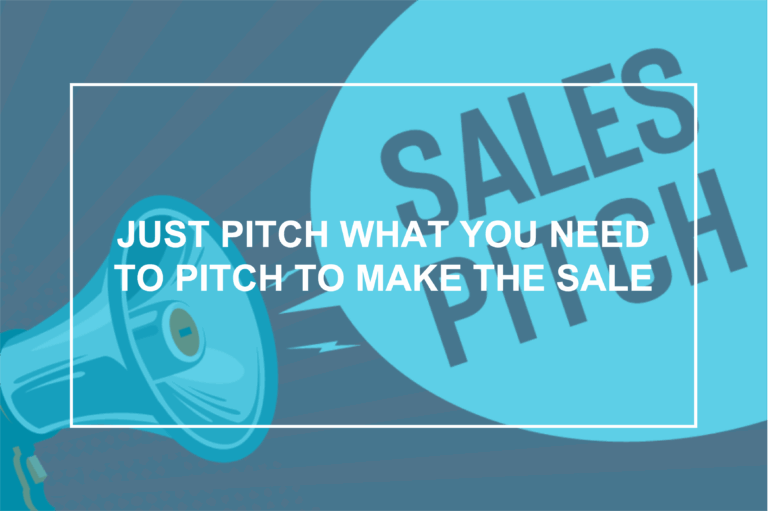Just Pitch What You Need to Pitch to Make the Sale
The other day, I listened in on a sales brainstorming session about a product a company I know is bringing to market in the near future.
Now, I often write blogs on the heels of experiences I have with clients or companies I meet with as prospects or mentees. I started writing this post from that point of view, but I realized I simply can’t tell the story in general terms while preserving confidentiality, so I won’t.
I will simply share a strong point of view that struck me during this meeting. The entire market or system around an issue you are tackling does NOT need to be broken for you to be able to sell your product.
In my experience, people who make the argument that everything in the space is a disaster and they are the solution actually lose rather than gain a sales opportunity. I’ve opined on this obliquely once before, in my post about people alleging in pitches that giant, very successful companies are terrible. That is one example of what I am talking about here, but there are others.
This shows up in two main ways in my universe:
- The entire sector is in shambles, and we will replace every single player.
- Our product works really well for people who do X, there are a lot of people who do X, and by the way, everyone who does Y should also do X, using our product.
Both these sales are so brazen as to miss a very simple, incremental decision to buy a product or service without throwing the baby out with the bathwater. Many, many people and companies will buy things when:
- The thing you are selling is better by 10-20% than any other option on the market, say, and switching costs are lower than 10-20%, especially in the long run.
- “We do X. We love doing X. Your thing works great for people and companies who do X. Fantastic! Where do I sign?”

I am sure it’s just (or mostly) me, but I find when I am watching a seller make a claim that is far larger than required, I have an instinct to distrust them. My story is these occurrences coincide with unnecessarily biased views of the existing market. But those views are not prerequisites for me to make the kind of buying decision that would get that seller to her quota or her target revenue for herself.
So.
Stop it.
People will likely buy your product if it (a) solves a problem or creates an opportunity and (b) saves some amount of time or money or creates some amount of value. Let that be enough.
My favorite example of this comes from a small startup, Halp, founded by Fletcher Richman in the late 2010s. Halp was a Slack-integrated tool for managing support tickets. They didn’t purport to be “reinventing customer support” under the assumption that everything about the function is a disaster. They weren’t purporting to be “creating a ticketing platform that would work in every area of every business.” They simply created an extremely user-friendly system for companies that were struggling to manage, track, and complete IT and customer support requests. And the system was integrated with what then was (and still is?) the most popular communications platform in tech. That company was so successful, it sold to Atlassian in a meaningful transaction less than two years after its founding. It is still a part of Atlassian’s offerings.
I can see that my perspective here is also influenced by my belief in what I call “passionate ambivalence” as a sales strategy. You’ll be able to read more about that in September 2025 when Hachette releases my next book, Never Ask For The Sale.
I also will say that this might not be as true for startups trying to sell investors on a new idea for a company. In that instance, a startup’s theoretical total addressable market (TAM) needs to be big and meaty enough to persuade venture capitalists, most of whose investments fail, to think they could garner geometrically outsize returns for your idea.
But I think my argument stands up in most other selling approaches.
What do you think? Any reactions, feelings, or blurts? Share them here.


